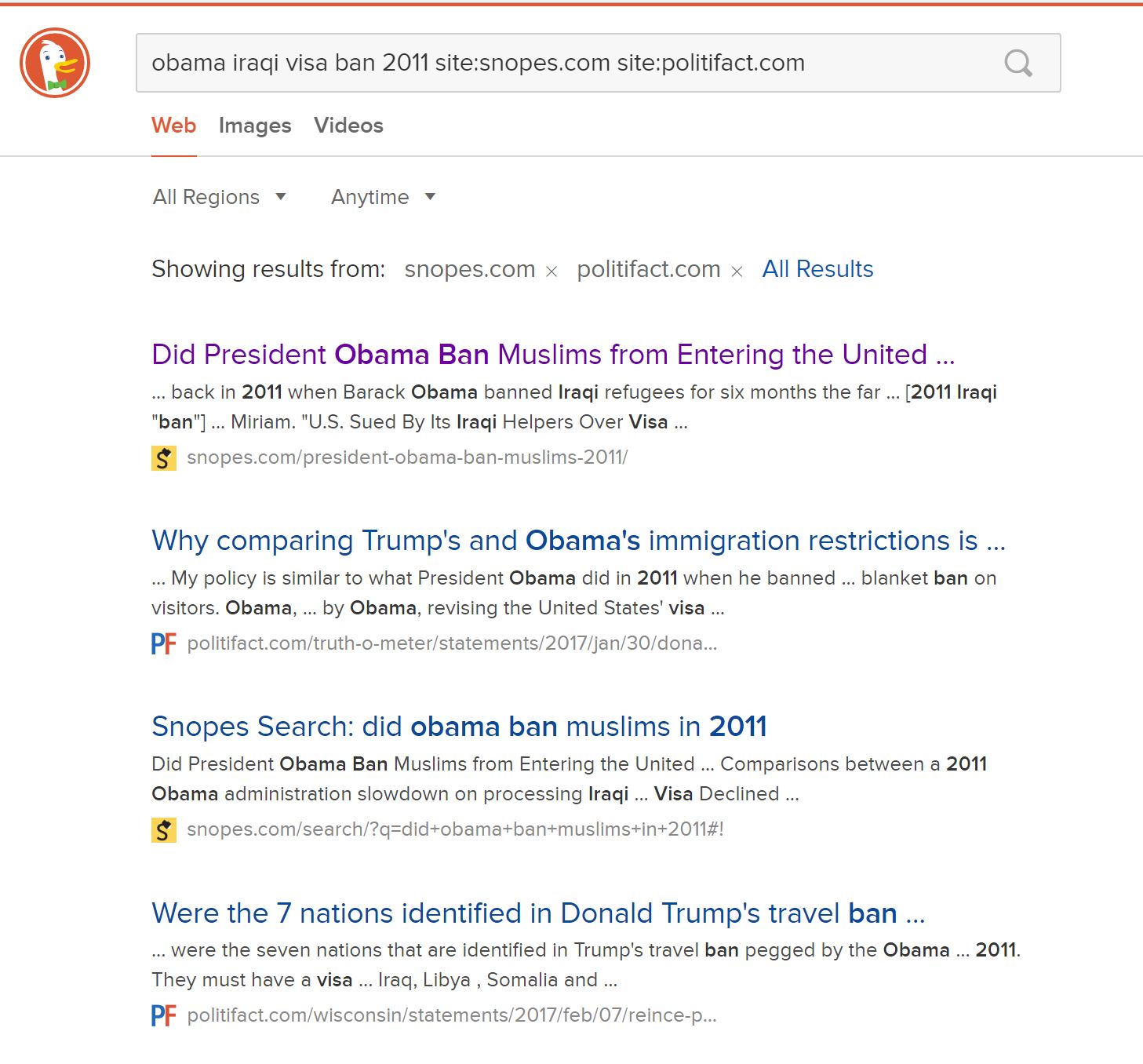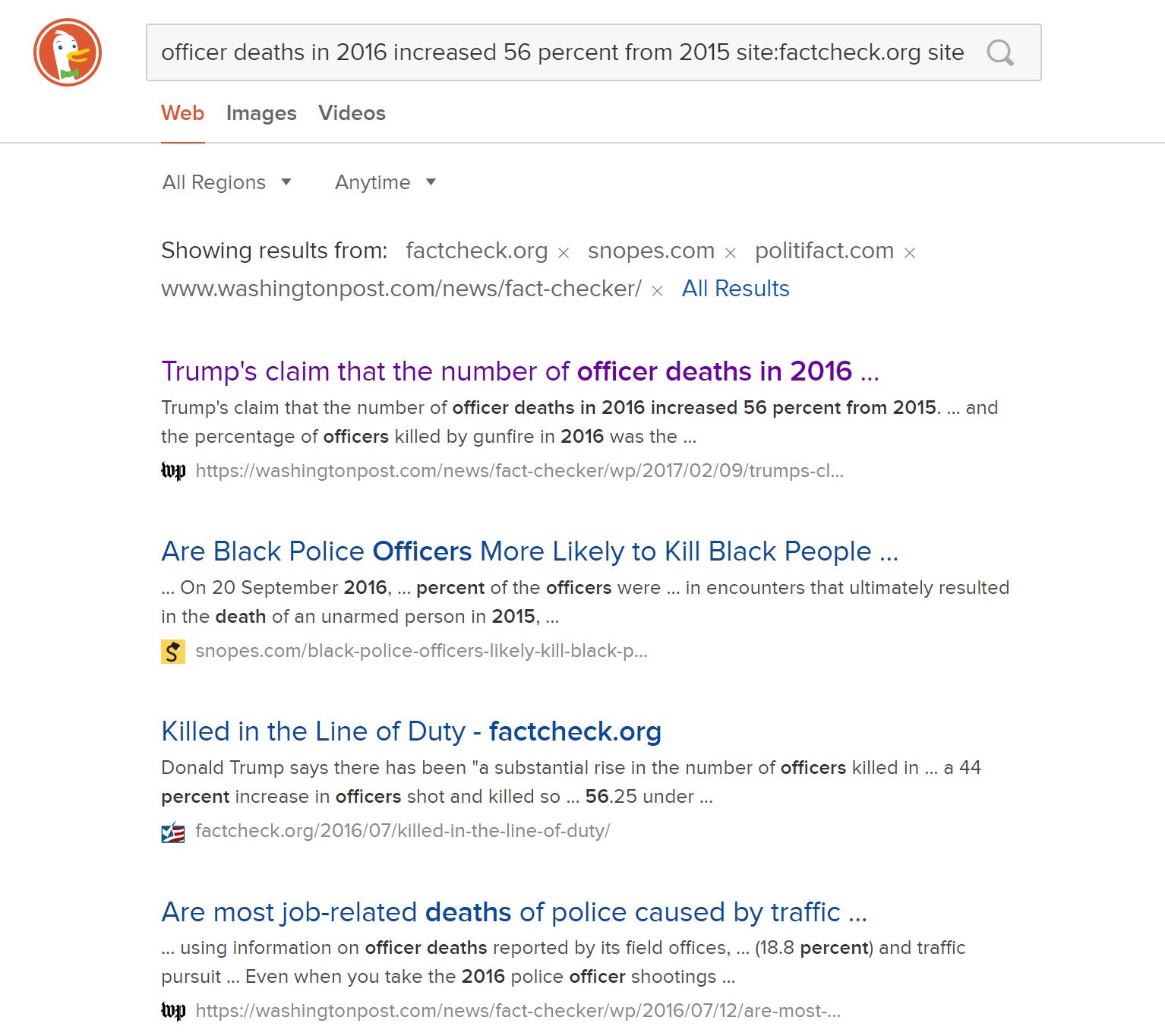4 How to Use Previous Work
When fact-checking a particular claim, quote, or article, the simplest thing you can do is to see if someone has already done the work for you.
This doesn’t mean you have to accept their finding. Maybe they assign a claim “four Pinocchios,” but you would rate it three. Maybe they find the truth “mixed,” but honestly it looks “mostly false” to you.
Regardless of the finding, a reputable fact-checking site or subject wiki will have done much of the leg work for you: tracing claims to their source, identifying the owners of various sites, and linking to reputable sources for counterclaims. And that legwork, no matter what the finding, is probably worth ten times your intuition. If the claims and the evidence they present ring true to you, or if you have built up a high degree of trust in the site, then you can treat the question as closed. But even if you aren’t satisfied, you can start your work from where they left off.
Constructing a Query to Find Previous Fact-Checking
You can find previous fact-checking by using the “site” option in search engines such as Google and DuckDuckGo to search known and trusted fact-checking sites for a given phrase or keyword. For example, if you see this story,

then you might use this query, which checks a couple known fact-checking sites for the keywords: obama iraqi refugee ban 2011. Let’s use the DuckDuckGo search engine to look for the keywords:
obama iraqi visa ban 2011 site:snopes.com site:politifact.com
Here are the results of our search:

You can see the search here. The results show that work has already been done in this area. In fact, the first result from Snopes answers our question almost fully. Remember to follow best search engine practice: scan the results and focus on the URLs and the blurbs to find the best result to click in the returned result set.
There are similar syntaxes you can use in Google, but for various reasons this particular search is easier in DuckDuckGo.
Let’s look at another claim, this time from the President. This claim is that police officer deaths increased 56 percent from 2015 to 2016. Here it is in context:

Let’s ramp it up with a query that checks four different fact-checking sites:
officer deaths 2016 increased 56 percent from 2015 site:factcheck.org site:snopes.com site:politifact.com site:www.washingtonpost.com/news/fact-checker/
This gives us back a helpful array of results. The first, from the Washington Post, actually answers our question directly, but some of the others provide some helpful context as well.

Going to the Washington Post lets us know that this claim is, for all intents and purposes, true. We don’t need to go further, unless we want to.
